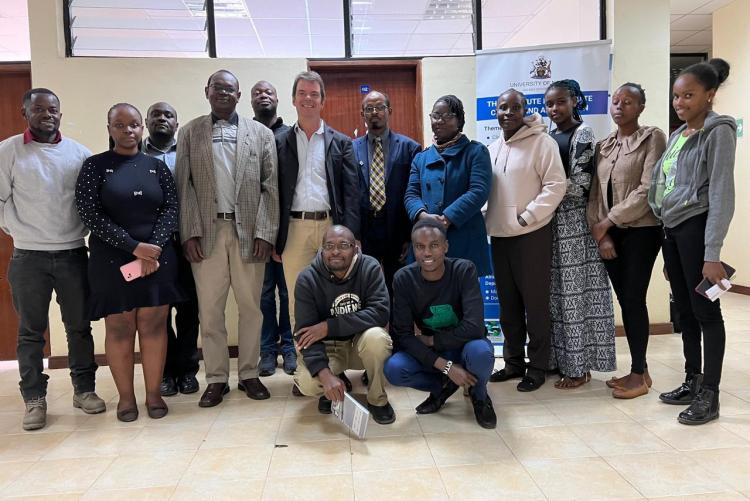Name: Prof. Robert Marchant, University of York
Topic: Understanding past, present and future Ecosystem-Societal interactions to inform Sustainable Futures – Seminar & Training on the KESHO Tool.
Audience: ECS Postgraduate students and staff;
Venue: Department of ECS Chiromo Campus, UoN;
Date: Tuesday 23rd July 2024; Time: 9am to 1pm;
Meeting Venue:- ICCA Seminar Room 101, Chiromo Campus (Institute for Climate Change and Adaptation)
Synopsis:
East Africa is characterised by topographically diverse and complex topography that plays a fundamental role in shaping regional and continental-scale climates, underpin global processes, are a source to major river systems and support unique, and often highly biodiverse and threatened, ecosystems. Mountains cover only ~25% of the world’s total continental land surface yet are home to more than 85% of the world’s amphibians, birds, and mammals, many of which are entirely restricted to mountains. This amazing diversity is especially high in the tropics; where hotspots of extraordinary species richness commonly exhibit high levels of endemism and beta diversity at genetic, species, and ecosystem scales as well as being culturally diverse and of economic importance; directly supporting communities through the provision of a diverse range of ecosystem services. Despite this importance as stores of biodiversity and drivers of global sustainability, mountains do not receive the corresponding academic attention, protection and investment, nationally or internationally. We must identify priorities for new ways to understand, value, protect and conserve mountains. By taking a range of approaches including remote sensing analysis, palaeoecology, biodiversity and carbon plots and participatory interdisciplinary that combines temporally and spatially diverse datasets we can understand how Mountain environments, and the benefits people obtain from them, have changed, are being challenged at present, and are changing into the future. Such insights can be used to strengthen adaptation and preparedness for future challenges. Participatory scenario approaches have been used to co-create credible and innovative land use future scenarios that integrate science-based knowledge and data with local wisdoms to enable local, national and international decision makers to envision a future where space for wildlife, biodiversity is maintained, and appropriate adaptation strategies to be realised, or at least avoid a future of continued degradation and unsustainable land use transformation. There will be a focus on understanding participatory scenario tools, how these can be used and implemented from the local to the national scale.

